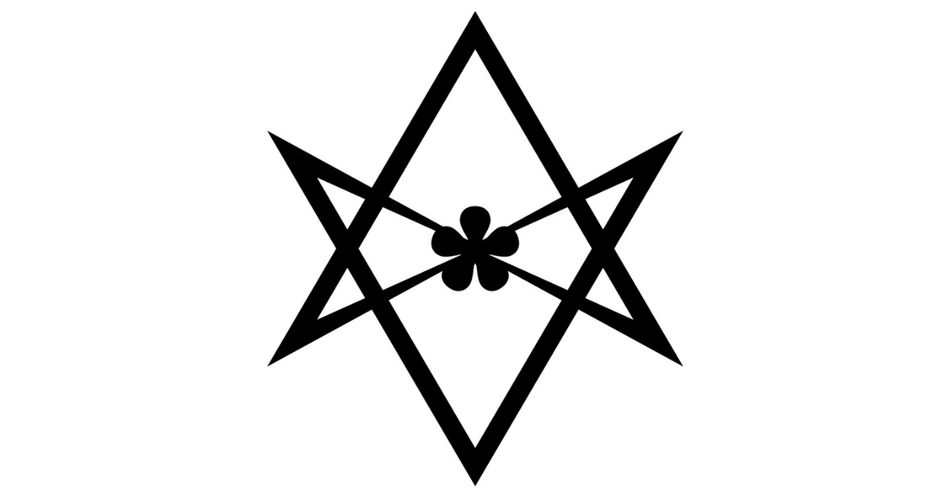Depending on where you find the word, “helema can have very different meanings. In biblical studies, thelema is a Greek word that appears a few times in the Bible, referencing ideas about sovereignty. In religious studies, Thelema is a recognized religion or occult tradition with a bizarre founder, and it’s this meaning that concerns us today.
Here is what you need to know about Thelema.
What Does the Word 'Thelema' Mean?
Thelema is a Greek word derived from the shorter word thelo. Both words appear various times in the New Testament Gospels and Epistles. Strong’s Concordance defines thelema as “what one wishes or has determined shall be done.” Within the Bible, thelema typically means “God’s will for people to do.”
This emphasis on will or determination would become an essential part of the religion Thelema, which has a strange history.
Where Does the Religion Thelema Come From?
Note: This section included references to occult rituals
The religion Thelema was developed by British writer Aleister Crowley (1875-1947). Crowley was one of the twentieth century’s most notorious figures, partly because he created legends about his exploits. For that reason, it’s crucial to get a short factual overview of his life.
Edward Alexander Crowley was born in 1875 into a wealthy British family. He changed his name to Aleister while studying at Cambridge, where he pursued several hobbies (chess playing, mountaineering) and wrote poetry, but never got a degree. During his Cambridge years, Crowley became interested in esoteric religious rituals and mysticism. He reached a turning point when he discovered The Book of Ceremonial Magic by Arthur Edward Waite. Waite belonged to a secret occult society called The Hermetic Order of the Golden Dawn.
The Golden Dawn was founded by Freemasons William Robert Woodman, Samuel Liddell MacGregor Mathers, and William Wynn Westcott. Like the Freemasons, the Golden Dawn was an exclusive organization with secret rituals. In The Fellowship, Philip Zaleski and Carol Zaleski describe how the Golden Dawn practiced magic rituals “stitched together from Catholic, Egyptian, and Rosicrucian threads.” Its members included famous artists like W.B. Yeats and Arthur Machen. They had diverse interests in magic; many practiced goetia, a Latin term for magic rituals to communicate with spirits.
Crowley joined the Golden Dawn in 1898 and quickly clashed with Yeats and other important members. Yeats wasn't impressed when Crowley showed him some of his poetry, and generally found Crowley immoral, commenting that the Golden Dawn was “not a reformatory.” Rumors that Crowley practiced goetia rituals where he had sex with men and women worsened his reputation. Then, in 1900, Crowley sided with Mathers in a power struggle. The Golden Dawn expelled Mathers and barred Crowley from its London location. While the Golden Dawn didn’t officially expel Crowley, he became less active and slowly distanced himself from Mathers.
Over the next decade, Crowley traveled, climbed mountains, performed various magic rituals, and wrote poetry and nonfiction about the occult (sometimes plagiarizing Golden Dawn material). In 1904, Crowley claimed he and his first wife, Rose Edith Kelly, had a spiritual experience in which a messenger named Aiwass described a new phase of human history (or æon). Crowley was to be the æon’s prophet. Aiwass and other spirits dictated their teachings to Rose over three days, with Crowley recording them. Crowley edited and published these teachings in 1909 as Liber AL vel Legis (The Book of the Law). The book describes deities who call the Æon of Horus a time for unprecedented “light, life, love and liberty.” However, only the few who reconnect with their divine inner selves via magic will enjoy these pleasures.
In 1907, Crowley founded A∴A∴, an occult organization to supersede the Golden Dawn. Its teachings included The Book of the Law and other Thelemic teachings that Crowley kept developing and promoting until he died in 1947. Crowley also joined several existing occult organizations, often introducing his ideas into their rituals. Stories about Crowley’s behavior led the English tabloid press to dub him “the wickedest man in the world.” Crowley encouraged this public image, claiming he was “the Great Beast” described in The Book of the Law.
After Crowley’s death, various other organizations (some led by Crowley’s associates, others appropriating his ideas) spread Thelema. Crowley also influenced people who became famous for their occult interests, including Scientology founder L. Ron Hubbard and Wicca practitioner Gerald Gardner.
Crowley has impacted academic studies and popular culture in surprising ways. Scholars still study his novels, poems, and plays, debating their merits and intersections with his beliefs. Writers have based various characters on Crowley (including the first James Bond villain). In the 1960s-1970s, rock musicians namedropped or referenced Crowley’s ideas, from David Bowie to Led Zeppelin.
What Are Thelema’s Core Beliefs?
Note: This section included references to occult rituals
As noted above, Crowley was involved in various occult groups and reused many of their ideas. For that reason, Thelema combines ideas from many earlier religions or traditions, Eastern and Western. Granting this fact, Thelema has some distinct core doctrines.
The first principle of Thelema is “Do what thou wilt shall be the whole of the Law.” Hence the use of the Greek word thelema, meaning “will.” Crowley claimed that this first principle was the guiding law for the Æon of Horus. Specifically, each person must find their individual True Will—get in touch with their inner divine self, discover what it desires, and pursue that path.
Thelema is a polytheistic religion containing various deities. The three central deities are mentioned early in The Book of the Law:
- Nuit is a sky goddess also referred to as “Great Mother” or “Our Lady of the Stars.” Her words make up the first chapter of The Book of the Law.
- Hadit, Nuit’s husband, is “the flame that burns in every heart of man, and in the core of every star,” representing concepts like time and motion. His words make up the second chapter of The Book of the Law.
- Ra-Hoor-Khuit is the god Horus in one of his various forms. His words make up the third chapter in The Book of the Law. He represents the sun and describes himself as a vengeful god. Since Thelema claims the æon of Horus is upon us, his principles are paramount.
Scholars have noted similarities between Thelema’s three gods and Egyptian deities Nut, Osiris, and Horus. Depending on their interpretation, Thelemites might describe these deities as genuine beings or archetypes for understanding and unlocking inner potential.
Thelema’s magic rituals (Crowley used the older spelling “magick”) are supposed to help people harmonize with their true wills, aided by their “inner guardian angels.” Crowley later said that Aiwass was his inner guardian angel who revealed the Book of the Law to him. His rituals often involved drugs and sexual activity. Throughout his life, Crowley appointed different women to be “the Scarlet Woman,” a ritual prostitute outlined in The Book of the Law.
While many Thelemites argue that “do as thou wilt” doesn’t excuse illegal activity or harming others, others have argued that Nietzschean individualism is its logical result. Crowley didn’t give exhaustive details for what “do as thou wilt” meant, claiming it was not something that could be taught: it had to be experienced.
Is Thelema the Same as Satanism?
Because Crowley enjoyed courting publicity, it’s hard to say what he truly believed. He called himself “the Great Beast 666,” and his private letters mention him contacting demons with Thelemite rituals. In other letters, he described the demons as manifestations of inner potential, which he claimed was the same thing. Historians have called Crowley everything from a supernaturalist trying to create a new order to an atheist using magic to excuse sex and drugs.
Regardless of Crowley’s true beliefs, Thelemite teachings don’t fit Judeo-Christian thought. Thelema describes gods and goddesses other than the one true God of the Bible. It prioritizes finding one’s own will and path, a process where a person’s subjective path or truth is all that matters. The Bible paints a complex picture of free will but consistently views humanity’s goal as finding the one objective truth and submitting to that truth. Hence, the Westminster Shorter Catechism says humanity’s goal is “to glorify God and enjoy him forever.” Thelema ultimately is about worshiping the self, which defies the fact that only God is worthy of worship.
Furthermore, even if Thelema’s gods are not objective spiritual beings, that doesn’t mean it’s safe to worship them. Christopher J.T. Wright gives an accessible explanation of the Bible’s teachings on idolatry in Here Are Your Gods. Wright considers how some Bible verses say idols are nothing (in which case, why is worshipping them dangerous?) and others warn against idolatry (does that mean there are real spiritual beings involved?). These ideas sound contradictory but fit together: idols may be nothing compared to God’s power, but they might be guises for demons (hence Paul’s warning in 1 Corinthians 10:20). Therefore, we must avoid worshipping idols—not just because God alone deserves worship. Not just because idols are nothing compared to God. Because there might be demons involved.
What Can Christians Do if They Meet Someone Who Follows Thelema?
Occult religions are often inconsistent. People who practice Thelema include atheists using it as meditation, supernaturalists trying to contact demons, and everything in between. For that reason, it’s hard to give a one-size-fits-all answer for what Christians should do if they meet someone practicing Thelema. However, there are basic principles Christians can remember any time they meet someone involved in Thelema or other occult religions.
Be cautious about engaging with them. Thelemites may not believe in any supernatural activity, or they might see Thelema as unconnected to black magic, or they might be pursuing black magic for power. Therefore, be aware that there may be something dark around them, and don’t go looking for trouble. We are not to be afraid of demons (Romans 16:20), but we aren’t to be foolhardy either (Proverbs 14:6).
Be prepared for spiritual warfare. Spiritual warfare is a broad term for prayer and other Christian spiritual practices to fight against demonic attacks. There are various misconceptions about it, but its basic principles (reflecting on the Bible, privately or publicly praying against demonic attacks) fit the Bible’s teachings. Since the Bible clarifies that at least some of the trials we will experience in this life have supernatural threats behind them, spiritual warfare is something we should all know about anyway.
Remember that God is greater than the forces of darkness. There may be demons involved in Thelemite practices, but God is greater than anything from the devil (1 John 4:4). Therefore, we should be careful not to become too interested in the occult or be cocky, yet remember a greater spiritual power protects us from the darkness. We must be cautious but not fearful.
If it’s wise, point out inconsistencies. You have several options if you are in a safe position and God is nudging you to speak with someone involved in Thelema. Pray carefully about what God wants you to say, and see where it leads. One helpful option is suggesting the person think through their beliefs—where their presuppositions logically lead and if those conclusions are livable. You can suggest the person consider where “do as thou wilt” truly ends. No matter how altruistic they sound, self-centered ideals with no outside standards or goals are unlivable. They sound great, but they don’t provide guidelines to keep people from being immoral. Furthermore, living for oneself means that one doesn’t have anything beyond oneself to live for.
Further Reading:
What Is the Meaning and Beliefs of the Occult?
What Does the Bible Say about Magic?
What Should Christians Know about the Tarot Deck?
Photo Credit: Getty Images/cveiv
Christianity.com's editorial staff is a team of writers with a background in the Christian faith and writing experience. We work to create relevant, inspiring content for our audience and update timely articles as necessary.









